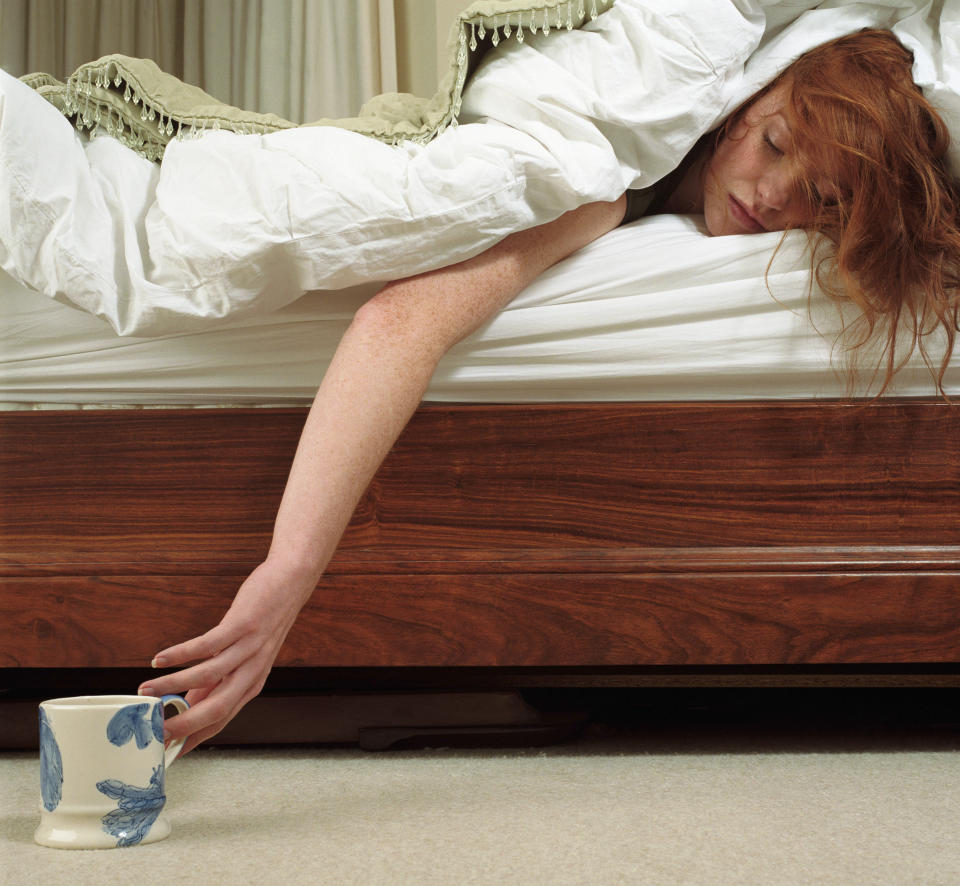6 scientific ways to cure a hangover
So you’ve outlived the habitual overfeed we call Christmas day. Time to wash down the turkey with a glass bubbly (or 10). After all, the new year is upon us — and while some of us will reset the calendar a little worse for wear, holiday hangovers are as much expected as the boozy bonanzas that birth them, right?
Wrong.
There are evidence-based ways to enjoy a night of drinking without the consequential hangover. While there’s no shortage of mythical claims to cure them, few of them are truly backed by science. We’ve listed six that are.
ALSO SEE: It’s the most wonderful time of the year… for a facelift

6. Limit your alcohol intake
Sounds like a no-brainer, yet so many of us fail to factor the most obvious of cures: drink in moderation. A study of more than 100 young adults on vacation found that those who drank more heavily were more likely hungover, with 68 per cent of heavy drinkers reporting symptoms of fatigue, headache, nausea, dizziness, thirst and sensitivity to light or sound.
5. Avoid drinks with congeners
Congeners are toxic chemical by-products that form in the process of ethanol fermentation, where sugars are converted into carbon dioxide and ethanol, also known as alcohol. Basically, they’re substances, other than the desired type of alcohol, produced during fermentation.
Studies have found that consuming drinks with a high amount of congeners could increase the severity of a hangover. Congeners may also slow the metabolism and cause prolonged symptoms.
Drinks that are low in congeners include vodka, gin and rum, with vodka containing almost no congeners at all. While tequila, whiskey and cognac are all high in congeners, with bourbon whiskey containing the highest amount.
4. Eat a nutritious breakfast
Eating a good breakfast is one of the most tried and trusted ways to combat a hangover. That’s because eating a full, healthy breakfast can help put blood sugar levels in check. While low blood sugars aren’t a direct cause of hangovers, they can’t contribute to symptoms of fatigue, nausea and tiredness.
3. Sleep, sleep and more sleep
Giving your body a chance to recover is very important. While a lack of sleep does not cause a hangover, it can make symptoms worse. Migraines and irritability can become intensified by a lack of sleep. So grab a glass of water and get to bed.
ALSO SEE: Model shares powerful side-by-side photo after weight gain
2. Stay hydrated
Fill that cup to the brim — then double it. Alcohol can lead to dehydration in more than one way, which is, effectively, what a hangover is. Not only does excessive drinking speed up the production of urine, but it may lead to vomiting — leading to a further loss of fluids and electrolytes.
A good rule of thumb when drinking is to alternate between a glass of water between each drink. This technique will not only keep you hydrated, but it will help moderate your alcohol intake.
1. Have a drink the next morning
Affectionately known as “hair of the dog,” many people swear by the technique as hangover remedy. It’s largely based on anecdotal evidence, but there are some signs that support theories that having a drink the next morning can ease a hangover.
This is because drinking alcohol changes the way our bodies process intake — and a drink the next day could help the night’s toxins before leave the body more readily.
So there you have it, folks. Scientific proof that you can have your cake and eat it too.
Wishing you all joyous new year! Remember to drink responsibly.
Let us know what you think by commenting below and tweeting @YahooStyleCA!
Follow us on Twitter and Instagram.



